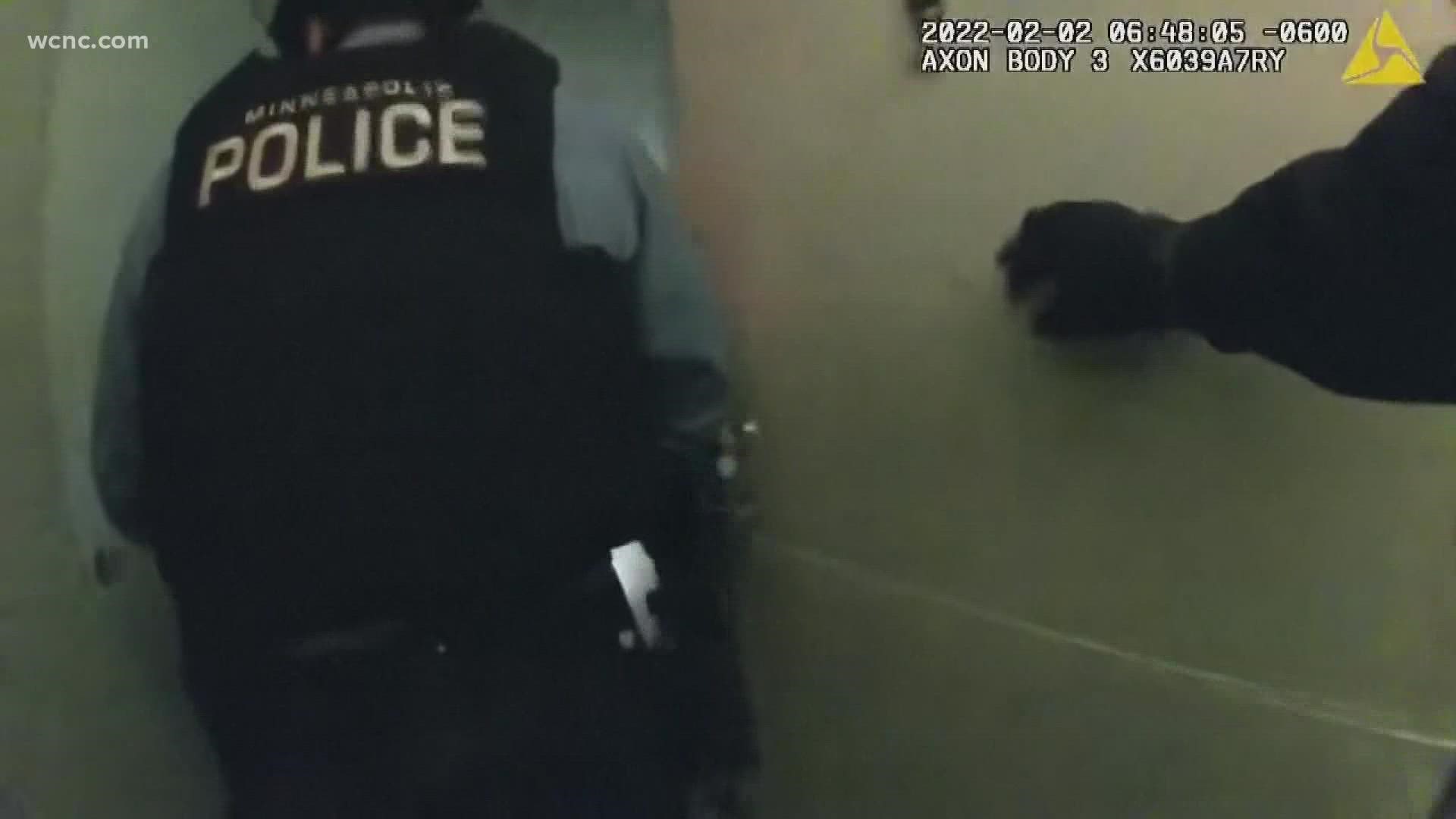CHARLOTTE, N.C. — The fatal police shooting of 22-year-old Amir Locke in Minneapolis has once again put a spotlight on no-knock warrant policies. Locke reportedly wasn’t named on the no-knock warrant but was killed seconds after police entered the home after officers found him holding a gun.
Locke's family has said he was a lawful gun owner.
So-called "no-knock" warrants were thrust into the headlines with Breonna Taylor’s death in 2020 in Louisville, Kentucky as people were horrified at the thought of officers potentially entering the wrong home and killing an innocent person.
"In the event of a no-knock warrant, we are all I think prey," Charlotte NAACP president Corine Mack said.
Body camera footage shows Locke had less than 10 seconds after Minnesota officers entered the apartment without knocking before he was fatally shot.
Mack said that could’ve been anyone.
“I think most people don’t know what to do because you have no authority, they’re in full authority," Mack said. "There are so many ways things can go bad."
Tyler Bailey, managing attorney at Bailey Law Firm, said there are reasons jurisdictions believe a no-knock warrant is necessary.
“They're typically used in high-risk situations where the law enforcement believes somebody's going to either get rid of some evidence or somebody's life may be in jeopardy if they notify somebody in the dwelling that they’re the police," Bailey said.
Bailey said the problem is the process isn’t perfect.
“Warrants are handled, sometimes, rushed," Bailey said. "If you go to the wrong address in a no-knock warrant, that’s a recipe for disaster.”
Bailey said he believes there are incidents where a no-knock warrant could be necessary.
“I think there needs to be a very high standard if they're going to allow that," Bailey said. "Let’s say there's a kidnapping situation or a terrorist hostage situation. In situations like that, if you know exactly where they are, it makes sense for a no-knock warrant.”
No-knock warrants are currently allowed in North Carolina, though some jurisdictions like the Charlotte-Mecklenburg Police Department have banned its use. In South Carolina, a moratorium on the practice is in place until judges are given better criteria on when they should be issued.
“It's something across the country different jurisdictions are looking into,” Bailey said.
The justice department introduced a new policy back in September limiting the circumstances in which federal agents can use no-knock entries as part of their effort to improve law enforcement safety and accountability.
Contact Lana Harris at lharris@wcnc.com and follow her on Facebook, Twitter and Instagram.

